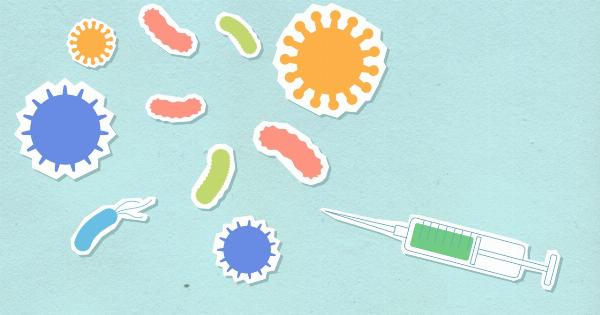Oral herpes, also known as cold sores or fever blisters, is a common viral infection that affects the mouth and the lips. The condition is caused by the herpes simplex virus (HSV) and is highly contagious.
The virus is transmitted through skin-to-skin contact, and people usually get infected with it during childhood. Although the infection is not life-threatening, it can cause discomfort and unsightly blisters. In this article, we will discuss the causes and early symptoms of oral herpes.
Causes of Oral Herpes
As mentioned earlier, oral herpes is caused by the herpes simplex virus (HSV). There are two types of HSV: HSV-1 and HSV-2. HSV-1 is the most common cause of oral herpes, while HSV-2 is associated with genital herpes.
Oral herpes is transmitted through close contact with an infected person, such as kissing or sharing utensils, towels, or razors. The virus can also be transmitted through oral sex. Once a person is infected with the virus, it remains in the body for life. The virus can become active from time to time and cause outbreaks of cold sores.
Early Symptoms of Oral Herpes
The symptoms of oral herpes usually appear within 2 to 20 days after exposure to the virus. The initial symptoms may be mild and easily mistaken for a cold or flu. The early symptoms of oral herpes include:.
- Tingling or burning sensation in the affected area
- Small, painful red or white bumps on the lips or inside the mouth
- Fever
- Sore throat
- Swollen glands in the neck
After a few days, the small bumps may turn into fluid-filled blisters that are painful and itchy. The blisters may burst and form scabs, which eventually fall off, leaving a small red mark.
The cold sores usually heal within 7 to 10 days, but the virus remains in the body and can cause recurrent outbreaks in the future.
Factors that Trigger Oral Herpes Outbreaks
Various factors can trigger oral herpes outbreaks. These include:.
- Stress
- Fatigue
- Fever
- Sun exposure
- Menses
- Allergic reactions
- Dental work
- Illnesses that weaken the immune system, such as HIV and cancer
It is important to note that not everyone who is infected with the herpes simplex virus experiences outbreaks. Some people may have the virus in their body but not have any symptoms.
Treatment and Prevention of Oral Herpes
There is no cure for oral herpes, but antiviral medications can be used to treat outbreaks and reduce their duration and severity. These medications work best when taken as soon as the symptoms appear.
Over-the-counter creams and ointments can also be used to relieve the pain and itching of cold sores. It is important to avoid touching or picking at the sores, as this can lead to secondary infections and delays in healing.
The best way to prevent oral herpes is to avoid close contact with infected individuals and to practice good hygiene. This includes washing hands frequently, avoiding sharing utensils, towels, or razors, and using protection during oral sex.
Conclusion
Oral herpes is a viral infection that affects the mouth and the lips. It is caused by the herpes simplex virus (HSV) and is highly contagious.
The early symptoms of oral herpes include tingling or burning sensation in the affected area, small painful bumps on the lips or inside the mouth, fever, sore throat, and swollen glands in the neck. Prevention of oral herpes involves avoiding close contact with infected individuals and practicing good hygiene.



























